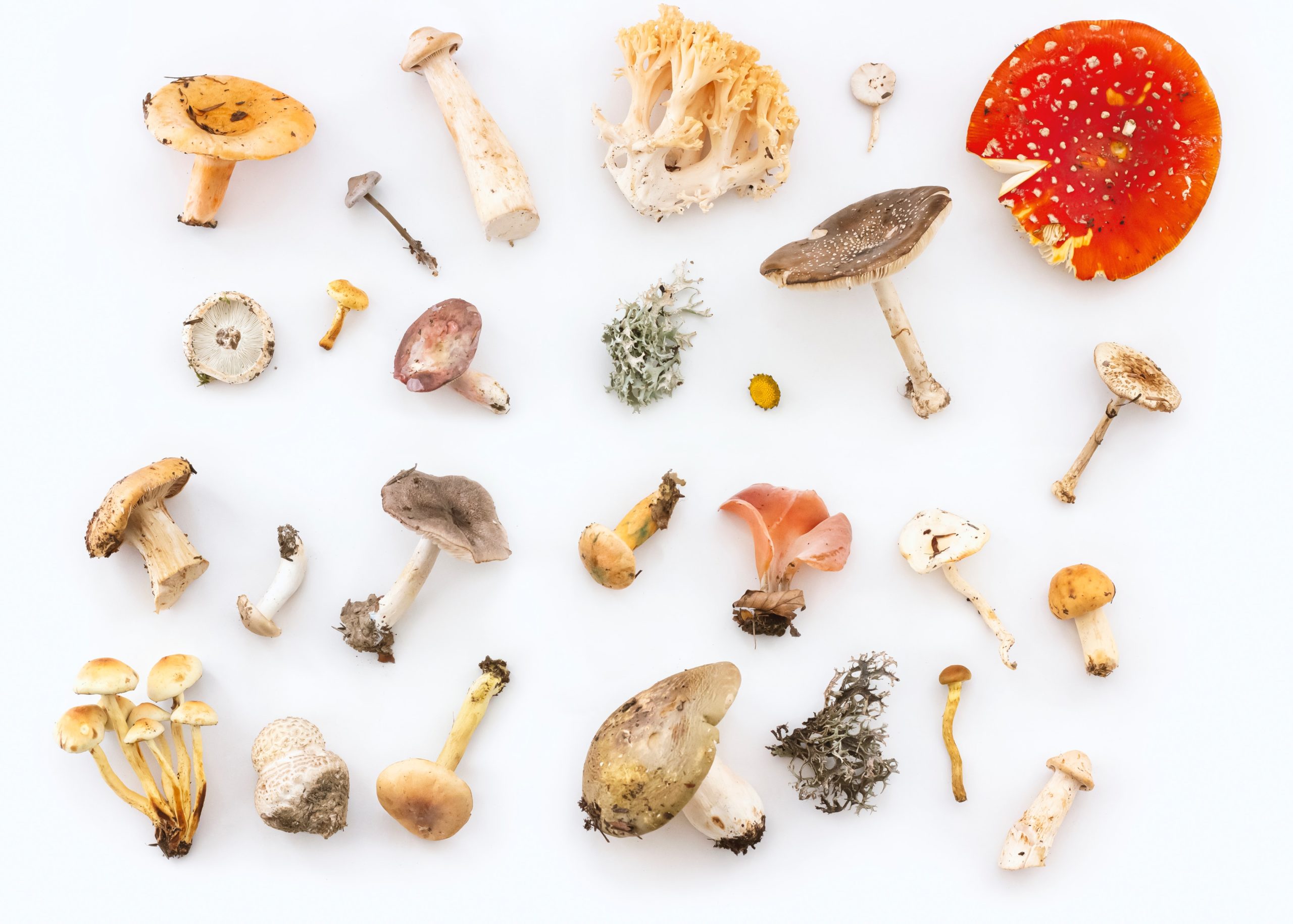 Autumn weather brings moisture, fallen leaves, and the return of forest fungi. These mysterious and often colorful fruiting bodies remind us that matter is not created or destroyed, but rather recycled and transformed to maintain system homeostasis. Mushrooms are designed by nature to consume debris for energy and can offer broad-spectrum immune support for people and the planet!
Autumn weather brings moisture, fallen leaves, and the return of forest fungi. These mysterious and often colorful fruiting bodies remind us that matter is not created or destroyed, but rather recycled and transformed to maintain system homeostasis. Mushrooms are designed by nature to consume debris for energy and can offer broad-spectrum immune support for people and the planet!
Research on the pharmacological properties of edible and medicinal mushrooms has categorized them as “functional foods,” which are foods that provide health benefits beyond their primary nutritional components. The use of mushrooms as both food and medicine dates back to China, 100 AD, where mushrooms such as reishi (Ganoderma lucidum), shitake (Lentinula edodes), and chaga (Inonotus obliquus) were associated with health and longevity. Mushrooms are common traditional ingredients of healthful dishes, soups, health tonics, tinctures and herbal formulas. Often considered “supreme protectors” and “shen tonics” in traditional Chinese medicine, mushrooms are used to maintain body system homeostasis: normalizing digestive function, modulating immune function, increasing resistance to stress, and enhancing mental clarity.
As a food, the meaty texture and savory flavor of mushrooms offer a complete source of protein that is much lower in calories (and guilt) than animal protein. Other nutritional attributes include vitamin C, ergosterol (a precursor to vitamin D), B12, and an array of minerals including potassium, magnesium, zinc, copper and iron. Research has shown that regular intake of mushrooms or a mushroom product is associated with preventing and treating chronic and degenerative illnesses. Of the more than 400 bioactive compounds present in functional mushrooms like reishi, complex polysaccharides known as beta-glucans are not only the most abundant, but are associated with significant immune-modulating effects.
Mushrooms contain a variety of compounds that have been classified as Host Defense Potentiators (HDP), which have immune system-enhancing properties. (1) Several different polysaccharides have been developed from the fruiting body, mycelia, and culture medium of various medicinal mushrooms in order to access a full spectrum of nutrients and phytonutrients for optimal health effects. Research suggests that specific pharmacological effects and physiological properties of functional mushrooms are: 1) bioregulation (immune enhancement), 2) maintenance of homeostasis and biorhythm regulation, and 3) to prevent and improve outcomes of chronic and degenerative diseases. (1) In fact, mushroom-derived HDPs are currently used as adjunct cancer treatments in Japan and China.
Easy ways to integrate the health-supporting benefits of functional mushrooms into your wellness regime include adding edible mushrooms like shiitake and oyster into as many autumn-inspired dishes as possible. Foods can be fortified with functional mushroom powders like Host Defense’s Stamet’s 7, which can be added to soups and bone broths. Try blending your favorite coffee beans with mushroom-fortified coffee beans, like Enerhealth’s Nurticafe Immune Support organic coffee. Or simply consider adding a high quality functional mushroom supplement to your winter wellness regimen. The knowledgeable wellness staff at Peoples Rx can help answer your questions about medicinal mushroom products and other ways to support winter wellness.
Jenny Perez is an Herbalist and Wellness Specialist at Peoples Rx. She received her Herbal Sciences degree from Bastyr University and has been an herbal educator and horticulturist for more than 15 years. Jenny has a passion for research and writing and helped develop the Food as Medicine article series for the American Botanical Council, contributing content for more than twenty articles. She teaches herbal pharmacy and compounding at the Wildflower School of Botanical Medicine and is the lead instructor for the Permaculture for Herbalists series.
References
1. Prasad S, Rathore H, Sharma S, Yadav AS (2015) Medicinal Mushrooms as a Source of Novel Functional Food. Int J Food Sci Nutr Diet. 04(5), 221-225. doi: http://dx.doi.org/10.19070/2326-3350- 1500040
